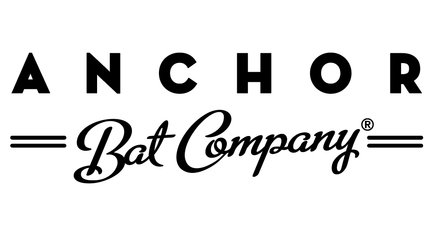
by Steven Tingle, TOWN Magazine – The first time Eddie Rollins made a baseball bat, his son Matthew wanted no part of it. At the time, Matthew was a high school senior and a talented baseball player who would go on to play college and professional ball. But teenagers are not known for their balanced judgment. “I wanted to be the cool kid,” Matthew says. “I didn’t want to swing some bat my father had made.” Matthew’s friends and teammates felt differently. “They kept telling me the bats were awesome,” Matthew says. “It was always, ‘Hey man, can you get your dad to make me a couple of bats?’” Not cool.
But oh, how things change. Now, some 13 years later, Matthew and his father are working together to produce some of the most consistent, high-quality bats on the market. The Anchor Bat Company is currently headquartered in a small garage in Taylors, but the two-year-old company is growing fast, and Matthew and Eddie hope to sell close to 5,000 bats this year. “We just signed a deal with the Charlottesville Tom Sox,” Matthew says, referring to a Valley League team in Virginia. “We beat out five other bat companies, and we were not only the smallest but also the most expensive.
It really gave us a confidence boost.” Matthew credits the company’s growth to the social media chatter from Anchor Bat fans all over the world. “We’ve taken orders from Australia, Canada, the Netherlands, and Belgium,” he says. “Our market is anyone who plays baseball.”
Like golf clubs and tennis racquets, baseball bats come in varying degrees of quality. Each bat starts out as a billet, a smooth cylinder of wood— generally ash—that resembles a table leg. Billets are graded A, B, or C, depending on the quality of the wood. Unlike most bat companies, Anchor uses only grade-A billets, which, according to Matthew, is almost unheard-of in the business. “For most companies, when they grow in quantity, they start cutting corners and their quality starts to suffer,” he says. “We want to provide the same quality, if not better, five years from now that we are right now.”
Matthew and Eddie are doers. Eddie, a carpenter by trade, will look at a guitar or farmhouse table and say, “I think I can make that,” and then proceed to go and make it. That’s how this whole bat business started. And Matthew is tenacious. While researching top-quality billets, he called the Louisville Slugger plant in Pennsylvania every day for a month before someone finally took his call—only to give him a different number, which he called for another three weeks. “It’s what we have to do,” he says. “It’s all about time, energy, and effort.” The marks of a good sport.
(photo credit: Paul Mehaffey)
